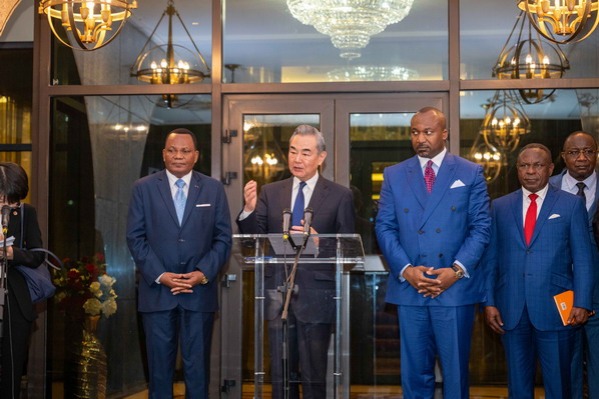Tories plan for first 100 days of government

Johnson says main focus would be to complete the Brexit process by Jan 31
One week ahead of Britain's general election the Conservative Party has unveiled a plan of action for the first 100 days of a majority government, led by plans to complete Brexit and a February budget to implement tax cuts.
Labour responded by claiming a Tory victory would mean more austerity, privatization and tax giveaways, while the Liberal Democrats denounced the promises as fantasy.
In a statement published on Wednesday, the Conservatives indicated that by March 22 a new government would pass Prime Minister Boris Johnson's Brexit deal, and a Queen's Speech would introduce key domestic legislation covering law and order and health.
Opinion polls suggest a comfortable lead for the Conservatives, prompting Johnson to lay out his plans. The latest poll gave the Conservatives a 10-point lead over Labour, suggesting a comfortable majority of 48 for Johnson on Dec 12.
The poll, by Savanta ComRes for The Daily Telegraph, put Tory support at 42 percent, Labour on 32 percent and the Liberal Democrats on 12 percent — though 21 percent said they may change their mind between now and polling day.
The prime minister said his main focus would be passing the withdrawal agreement to ensure Brexit occurs on Jan 31, and there would be other priorities for the first three months.
Other measures in the Tories' first 100 days are said to include: legally guaranteeing an extra 33.9 billion ($44.6 billion) a year in National Health Service funding until 2023, ending automatic early release of serious violent and sexual offenders, increasing funding for schools, making migrants pay more to use the NHS, cross-party talks on social care, improving mobile phone signals in the countryside.
"In just seven days' time the British people will have to choose between a working majority government or yet another gridlocked hung parliament," Johnson said.
Challenged by ITV about the feasibility of his ambitious timetable, he said: "Have you ever known, have you ever known two countries start free trade negotiations or start negotiations on a new deal when they were already, already in perfect alignment in regulatory terms and had zero tariffs and zero quotas between them? That's where we are."
With opinion polls suggesting the UK would avoid a hung parliament after next week's election, the British pound jump to a seven-month high against the dollar on Wednesday as City traders bet that Johnson was on course for victory. Sterling jumped above $1.30 to hit 1.311, its highest level since May. The pound has risen sharply since October, gaining 6 percent in two months, after the EU granted Britain an extension to its departure from the bloc.
Stock markets also recovered some lost ground after positive comments by US President Donald Trump about trade talks with China.
- Senior Tories warn Britain's PM to leave university fees alone
- In Brexit showdown, May tries to quell rebellion by pro-EU Tories
- British cabinet agrees need to 'take action' as meeting over Syria ends
- Brexit, election concerns take blame for UK's falling business output: Survey
- Countries seek compensation over export disruption caused by Brexit

































